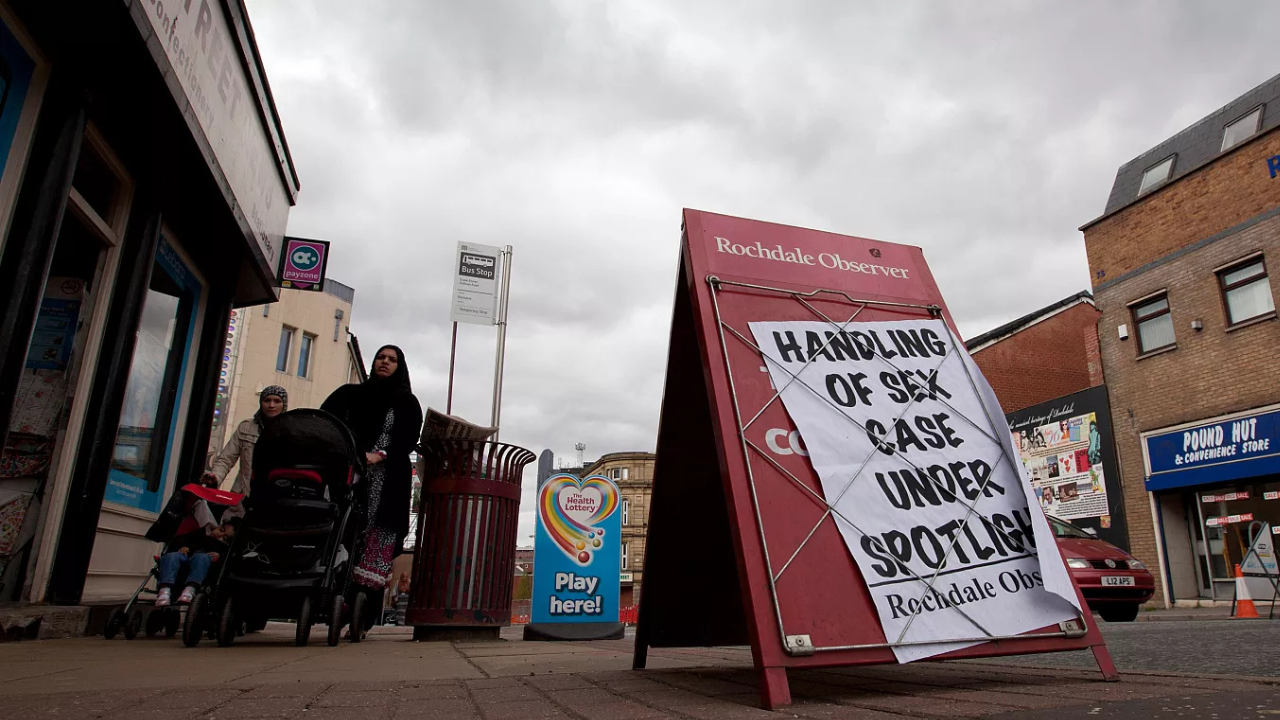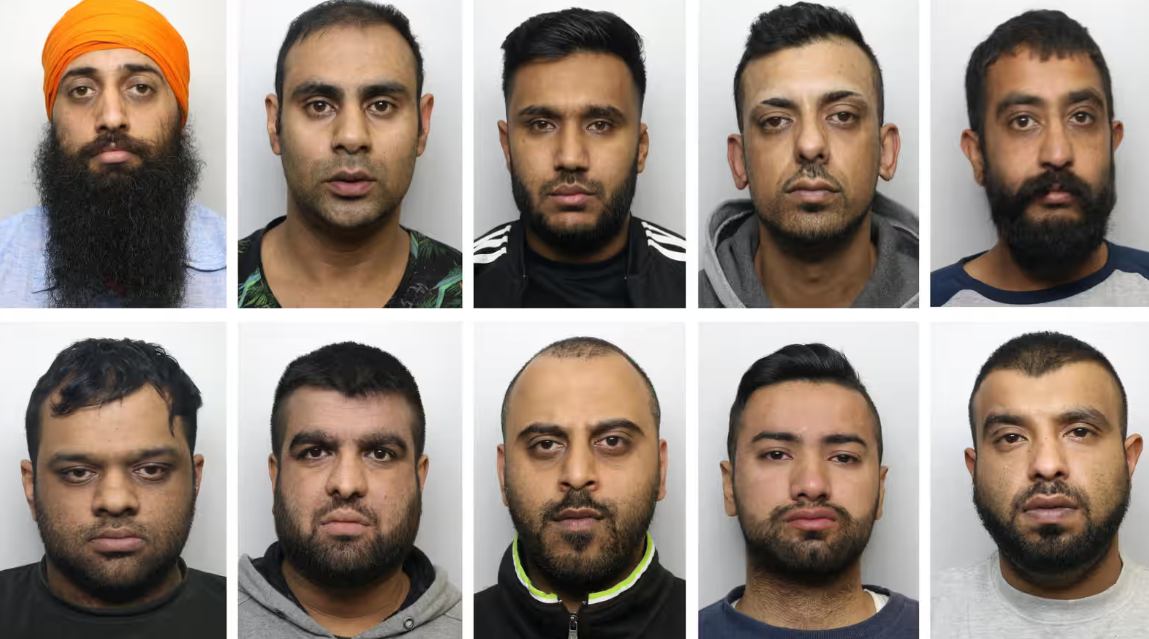
Among the worst cases were gangs operating in the northern towns of Rochdale where victims ran into thousands.
Photo : AP
The United Kingdom’s long-standing struggle with ‘grooming gangs’ returned to the spotlight this year after tech billionaire Elon Musk very publicly accused Prime Minister Keir Starmer of failing to prosecute child rapists, igniting fresh debate over a scandal that has haunted Britain for over a decade.
The controversy has made headlines through several high-profile and shocking cases across the UK. Where organised groups of men (often of Pakistani and South Asian origin) have been found guilty of systematically grooming and sexually exploiting thousands of underage girls in the UK.
But, while such cases have triggered both widespread outrage and revealed institutional failures in law enforcement and child protection, a persistent reluctance by authorities to address the ethnic backgrounds of many perpetrators, out of fear of appearing ‘racist’, continues to fuel controversy.
The discourse heated up last month after the British government announced a national inquiry into organised child sexual abuse following the release of the Casey Report, commissioned earlier this year by Prime Minister Starmer. The report by Baroness Louise Casey was a review of how the UK institutions have tackled child sexual exploitation and focused primarily on “grooming gangs”, groups of men who targeted vulnerable girls for sexual abuse, often over extended periods of time.
Soon after the release of the damning report, the Starmer government announced a national inquiry, a significant U-turn by the Labour Party government, which had resisted calls for an inquiry for months, even under international pressure from an outside influence like Elon Musk.
What are these ‘grooming gangs’?
The so-called “boyfriend” or “lover-boy” model of child abuse is a chilling pattern where vulnerable girls are lured in with affection and promises, made to believe they are loved, and then slowly coerced into a cycle of exploitation, manipulation, and fear.
In her report, shared by The Guardian, Casey concluded that too many grooming cases have been dropped or downgraded from rape to lesser charges just because a 13- to 15-year-old is perceived to have been “in love with” or have “consented to” sex with the perpetrator. It also identifies an institutional failure to protect children and teenage girls from rape, exploitation and serious violence, highlighting reluctance by the authorities to “examine the ethnicity of the offenders”, saying it was not racist to do so.
 Members of a grooming gang convicted in West Yorkshire. Amere Singh Dhaliwal (Pretos), Irfan Ahmed (Finny), Zahid Hassan (Little Manny), Mohammed Kammer (Kammy), Raj Singh Barsran (Raj). Bottom row left to right: Mohammed Rizwan Aslam (Big Riz), Abdul Rehman (Beastie), Nahman Mohammed (Dracula), Mansoor Akhtar, (Boy) and Mohammed Irfraz, (Faj). Photograph: West Yorkshire police/PA
Members of a grooming gang convicted in West Yorkshire. Amere Singh Dhaliwal (Pretos), Irfan Ahmed (Finny), Zahid Hassan (Little Manny), Mohammed Kammer (Kammy), Raj Singh Barsran (Raj). Bottom row left to right: Mohammed Rizwan Aslam (Big Riz), Abdul Rehman (Beastie), Nahman Mohammed (Dracula), Mansoor Akhtar, (Boy) and Mohammed Irfraz, (Faj). Photograph: West Yorkshire police/PA
Girls as young as 11 targeted in children’s care homes
In recent years, among the worst cases were gangs operating in the northern towns of Rotherham and Rochdale. A report on the Rotherham case detailed how an organised gang active in the town abused girls as young as 11, trafficking them across numerous towns and sometimes picking them up from children’s care homes in taxis in broad daylight. Minors abused in this case are estimated by authorities to have run into the thousands, and some of the groups are known to have operated for decades.
Similar cases have been exposed around the country over the last decade and a half in numerous towns and cities like Oldham, Oxford, Telford, and Peterborough.
Over or under-representation? Why aren’t ethnicities being recorded?
In Casey’s report, an audit of three police forces found clear evidence of the “over-representation of Asian and Pakistani-heritage men” among grooming gang suspects. At the same time, it criticised the persistent failure to collect ethnicity data at a national level. Police records show that in two-thirds of cases, the perpetrator’s ethnicity was not recorded, making any accurate national assessment virtually impossible.
Among its recommendations, the Casey Report suggested that there should be “a vigorous approach to righting the wrongs of the past”. A change in the law so that adults in England and Wales face mandatory rape charges if they intentionally penetrate a child under age 16, was suggested. At the same time, it urged that state agencies must be held to account for any part they played in allowing these crimes to go undetected and unpunished.
“Blindness, ignorance, prejudice, defensiveness and even good but misdirected intentions all play a part in a collective failure to properly deter and prosecute offenders or to protect children from harm,” she said.
And at the heart of every statistic is a child who was failed and a system that must answer for it.